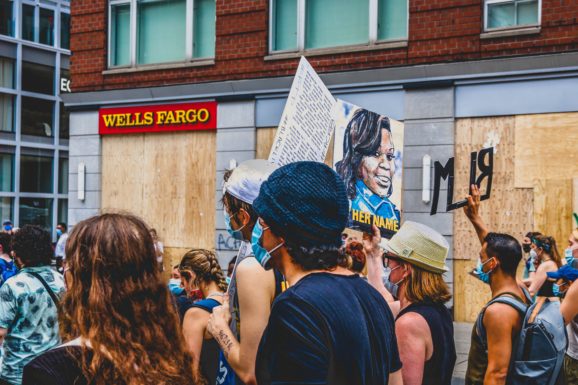For centuries, Black and Brown people have been denied the opportunity to build generational wealth in America. The heritage of slavery and discriminatory government policies, such as “Black Codes” during Jim Crow, the New Deal, the GI Bill and “redlining”, are just a few key players of racial inequalities that have hindered the overall economic well-being for communities of color, especially for Blacks.
According to the Federal Reserve’s most recent survey, the 2016 Survey of Consumer Finances, the average net worth for Black households was only $17,600, a mere ten percent of the $171,000 average net worth for non-Hispanic white households. Four years later, the gap continues to widen, as COVID-19 and other negative factors exacerbate opportunities for Black and Brown wealth in America.
As the nation continues to respond to and address systematic racism in America, many business leaders, academics, policy and industry experts are beginning to focus their lens on a recurring topic: the racial wealth gap in America.
These trailblazers are taking part in much needed conversations and presenting tangible solutions to bridge the divide in wealth for the Black and Brown communities in America.
In a recent panel on race and wealth, hosted by Handshake, Robert F. Kennedy Human Rights, and Social Capital Markets Spectrum community (SOCAP); cross-sector business leaders came together to share their perspectives and offer guidance to those wanting to take action and create real change.
Mayor Frank Scott, Jr. of Little Rock, Arkansas shared his three areas of focus for the Movement: Justice, Equity, and the Eradication of Racism. He stated, “To bridge the wealth gap in Black America, cities and the business sector have to have an equity-based approach to economic development. We have to all be willing to speak up and dismantle barriers. Everyone has their own ability to be courageous, to have a commitment, and to be concerned. We must hold everyone accountable so that we can move forward as a more equitable and equal nation together.”
Other panelists such as, Thasunda Brown Duckett, CEO of Chase Consumer Banking, argued that society is an ecosystem. “It is going to take all of us to understand the role that we each play to drive real sustainable outcomes. We must be proximate, communicate and engage in distribution channels where the Black community can receive information.”
Kerry Kennedy, President of RFK Human Rights, shared a powerful video on the ongoing violence and treatment of Blacks in America, saying, “If we can’t build up wealth in the community, we’re never going to be able to successfully attack racism at its core.”
Other key panel takeaways included:
- Knowing your history by reading more about the Compensated Emancipation Act and H.R.40 – Commission to Study and Develop Reparation Proposals for African-Americans Act.
- Giving to organizations that are on the frontlines fighting for racial eqaulity and justice.
- Registering to vote, because voting is one of the fundamental pillars of our democracy and is an important way to make your voice heard on the issues impacting us daily.
- Staying informed on legislative data by using PopVox, a nonpartisan platform for legislative information, advocacy, and governing tools at the state and federal level.
While these are just a few ways in which we can tackle this important issue, other industry leaders have also taken a stance to voice their opinions. A recent article by Forbes outlined 5 Big Ideas to Narrow the Racial Wealth Gap.
Solutions include:
- Funneling capital to Black-owned businesses.
- Distributing baby bonds to everyone.
- Forgiving $10,000 of federal student debt per person.
- Paying reparations to decendants of slaves.
- Helping Americans build emergency savings.
While these solutions alone will not eradicate the racial wealth gap in America, they can help lead this nation on a path so that nobody is left behind.
